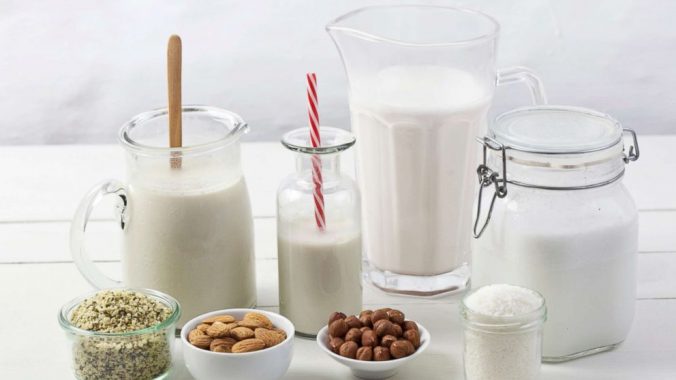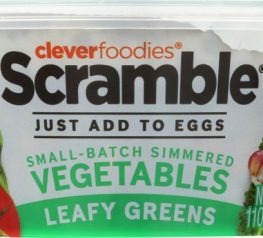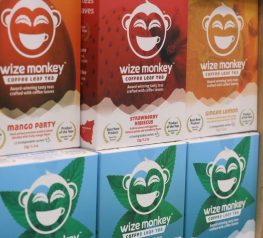Food Trends To Follow: Plant-Based Milk
Times are changing and food trends are evolving. There are a lot of formerly popular products that have fallen out of favor. As a result, consumers are turning to alternative options due to a combination of health and environmental concerns. For example, the consumption of regular dairy milk has plummeted while plant-based milk has experienced a huge surge in popularity.
What Are the Benefits of Selling Plant-Based Milk?
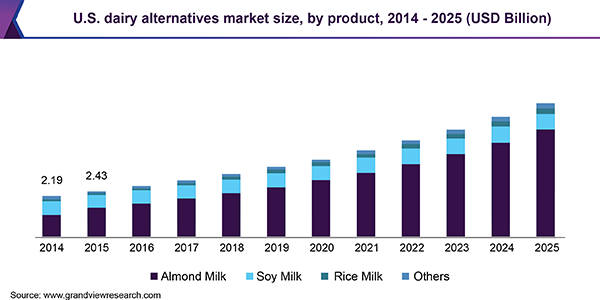
Plant-based milk is also known as:
- Plant milk
- Alternative milk
- Non-dairy milk
- Dairy alternative
Plant-based milks are exploding in popularity as more and more consumers are moving toward these non-dairy options. Obviously, as an online retailer, you need to always be on the lookout for products that sell well, and plant-based milk is one of the fastest-growing food trends today. In fact, a general increase in the number of plant-based food products has been observed across all sectors of the food market. That being said, plant-based milk is such a viable food trend for the following reasons:
- According to a recent report, the global market for dairy alternatives will grow from $11.90 billion in 2017 to a whopping $38 billion by 2024. This is an astonishing growth rate of over 14%!
- Consumers perceive alternative milk as healthier than cow’s milk. As a result, even consumers who aren’t vegetarian or vegan are switching to plant-based milk.
- Because of shifting food trends, non-dairy milk is growing in popularity while traditional dairy milk is becoming less popular. For example, the total sales of dairy milk in 2018 dropped approximately $1.1 billion!
- A recent analysis concluded that profitable returns on almond, rice, and soy milk are roughly 6% higher than traditional milk products.
- Alternative milk is cruelty-free. This is incredibly important for a growing number of consumers due to increased awareness about factory farming.
- Plant-based milk is more eco-friendly. Recent research has concluded that cows are responsible for about 11% of all greenhouse gas emissions.
- Unlike traditional dairy milk, plant-based milks don’t have to be refrigerated when you ship them. This makes it exceptionally easy for online retailers to pack and ship these products.
- Approximately 37% of US households purchase plant-based milk.
- Consumers are willing to pay almost twice as much for alternative milks.
8 of the Most Popular Types of Plant-Based Milk
The rise of plant-based milk is a little different than other food trends that have come and gone. For one, it doesn’t appear to just be a passing fad – the market demand is robust and growing. Additionally, this food trend appears to have its roots in coffee culture; most Americans were introduced to plant-based milk in their lattes. For example, if you were to go to a coffee shop a decade ago, chances are there would only be one dairy alternative: soy milk. Nowadays, if you ask your barista for non-dairy milk, they’ll likely list nearly a dozen options!
So, let’s take a moment to look at the 8 most popular types:
1) Soy milk
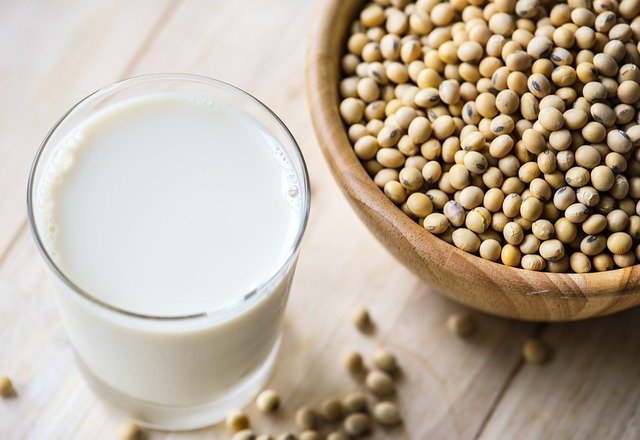
This is the original alternative milk. It’s been around for nearly a hundred years, but it really entered the popular consciousness in the 1970s and 80s. Since then, it’s enjoyed a long run as being one of the most popular dairy alternatives.
The average cup (8 ounces) of unsweetened soy milk has:
- 80 to 100 calories
- 4 grams of fat (mostly unsaturated fat)
- 120 milligrams of sodium (5% of your daily intake)
- 280 milligrams of potassium (8% of your daily intake)
- 4 grams of carbohydrates
- 1.5 grams of fiber
- 8 to 10 grams of protein
As you can see, it’s an excellent and cost-effective source of protein. It is also a great source of calcium, much like traditional cow’s milk. Additionally, many brands of soy milk are fortified with vitamin B12 since this valuable nutrient is rare in plant-based diets. Soy milk’s extensive nutrient profile is why it’s a popular choice for vegans and vegetarians.
However, soybean is one of the most common allergens. Furthermore, its consumption can result in unpleasant symptoms for people who are soy sensitive or soy intolerant, including:
- Bloating
- Gastrointestinal pain or discomfort
- Fatigue
- Headaches
- Rashes or inflammation of the skin
Critics of soy milk also point out that over 80% of the soybean grown in the United States are genetically modified organisms (GMOs). While this is true, it’s because most soy is grown as feed for animals, especially cows. On the other hand, organic soy milk is always made from GMO-free soybeans.
2) Coconut milk
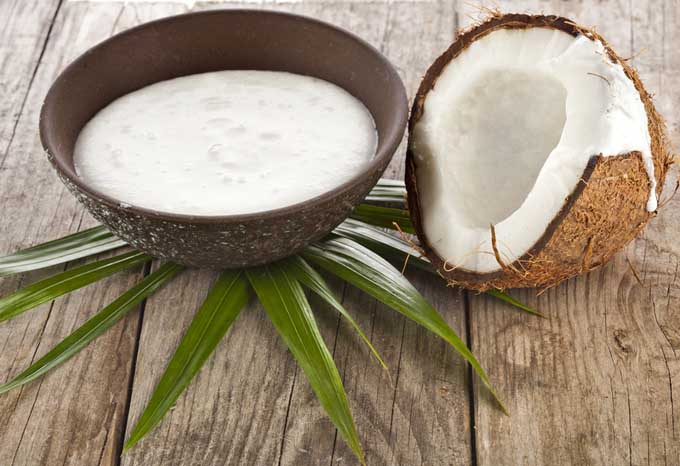
The coconut is an amazing gift of nature; for example, it can be used to create all kinds of beneficial products, including coconut water. It is also an increasingly popular plant-based milk due to its taste and versatility. For example, it’s frequently used as a replacement for dairy milk when cooking or baking, including for:
- Cream-based sauces or curries
- Various kinds of soup
- Pudding
- Ice cream
Furthermore, a cup of unsweetened coconut milk has about:
- 80 calories
- 5 grams of fat
- 4 grams of saturated fat
- Less than 1 gram of protein
- 1 gram of carbohydrates
Coconut milk gets its rich, creamy texture from its high volume of saturated fats. This may sound like a bad thing for a health-conscious consumer, but it’s important to note that most of these saturated fats are medium-chain triglycerides (MCTs). Recent research suggests that MCTs may be an excellent source of nutrition in a healthy diet. It is also rich in potassium and dietary fiber.
Unfortunately, coconut milk is very low in protein. However, many consumers simply use unsweetened plant-based protein powder to supplement their coconut milk!
3) Almond milk
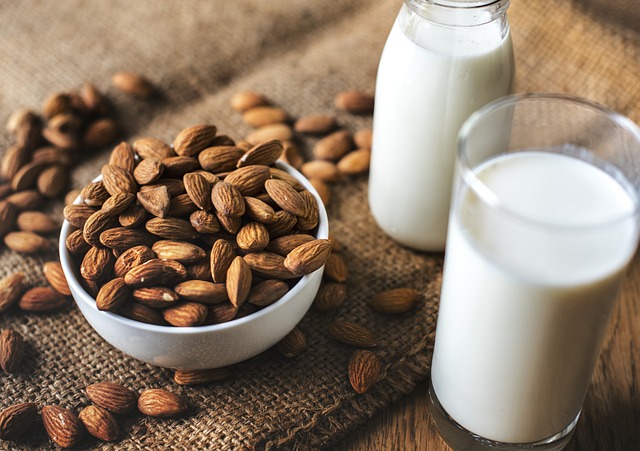
It’s amazing how much food trends can change. For example, traditional cow’s milk has long been touted as being the best source of calcium in a healthy diet. That was the gist of all those “Got Milk?” ads we’ve all seen over the years. However, a cup of almond milk actually has 50% more calcium than a cup of dairy milk!
Additionally, it is rich in:
- Fatty acids – Recent research suggests that the fatty acids found in almond milk (also known as MUFAs) can help with obesity and weight management.
- Vitamin E – This potent antioxidant has been linked to skin health and protection.
Furthermore, the general nutrition profile for a cup of unsweetened almond milk is:
- 30 calories
- 2.5 grams of fat
- 1 gram protein
- 1 gram of fiber
- 1 gram of carbohydrates
- 451 milligrams of calcium
As you can see, almond milk is unfortunately low in protein. It has a little more than coconut milk, but it’s not nearly as much as soy or dairy milk. However, it remains one of the most popular varieties of plant-based milk because it is low in calories but packed with great taste. Additionally, coffee enthusiasts really love it because it foams just as well as dairy milk.
4) Hemp milk
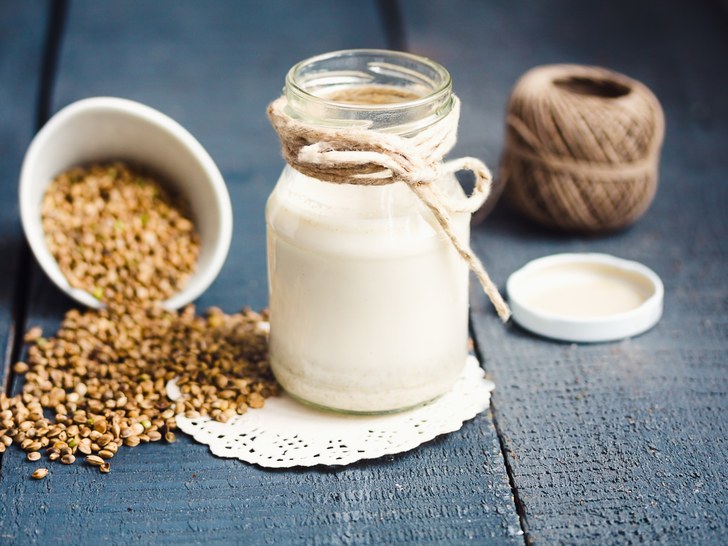
Online retailers should always keep an eye on food trends. So let us be the first to say: “Move over, here comes hemp milk!” As one of the newer entries to the world of plant-based milk, consumers are not entirely familiar with it just yet. But that all will be changing really soon. According to Zion Research, the global market for hemp milk in 2018 was $185 million, but by 2026 it will reach a whopping $527 million. With a projected growth rate of 15.5%, it’s quickly becoming one of the most exciting additions to the alternative milk market.
Hemp milk is made from the seeds of the plant. Furthermore, an 8-ounce serving has about:
- 100 to 130 calories
- 5 to 8 grams of sugar
- 3 to 4 grams of protein
- 2 grams of fiber
- 499 milligrams of calcium
While it’s not jam-packed with protein like soy or dairy milk, it has substantially more than almond or coconut milk. In fact, hemp seeds are a pretty good source of protein and can be used in other kinds of products. Additionally, it’s a complete protein, meaning that it’s full of amino acids that the body uses to repair tissue. It’s also rich in fatty acids like omega-3 and omega-6, both of which are fundamental for a healthy diet.
5) Rice milk
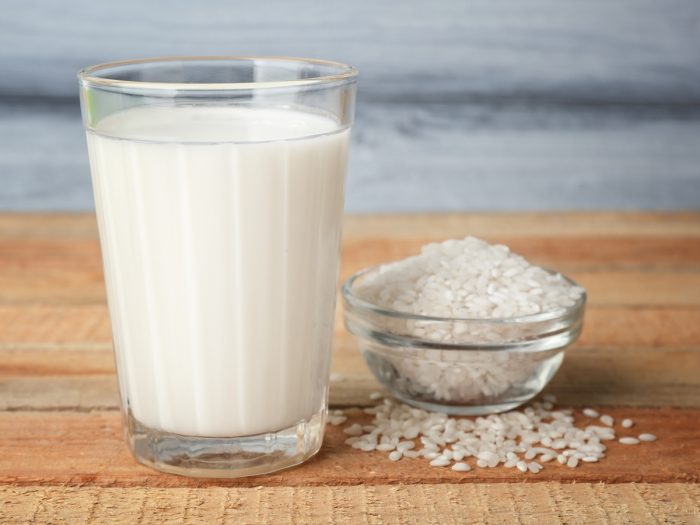
Much like soy milk, this is one of the original plant-based options. It’s been around for years and still has its share of loyal users. This is especially true for consumers who may have a sweet tooth or who lead exceptionally active lifestyles and require more fuel than your average person.
So, let’s take a look at its nutrient profile:
- Less than 1 gram of protein
- Less than 1 gram of fiber
- 12 grams of sugar
- 22 grams of carbohydrates
- 283 milligrams of calcium
Keep in mind, that’s for one cup (8 ounces) of unsweetened rice milk. If the manufacturer adds sugar or flavoring, then the sugar/carbohydrate levels will increase.
Rice milk really shines because it is the least allergenic alternative dairy option. Dieticians have identified a list of the most common allergens known as the Big-8. This list includes dairy milk, soy, peanuts, and tree nuts (almonds, cashews, pecans, and walnuts). Since rice is not on the Big-8 list, rice milk is an excellent choice for consumers who may be allergic to the other options.
6) Pea milk
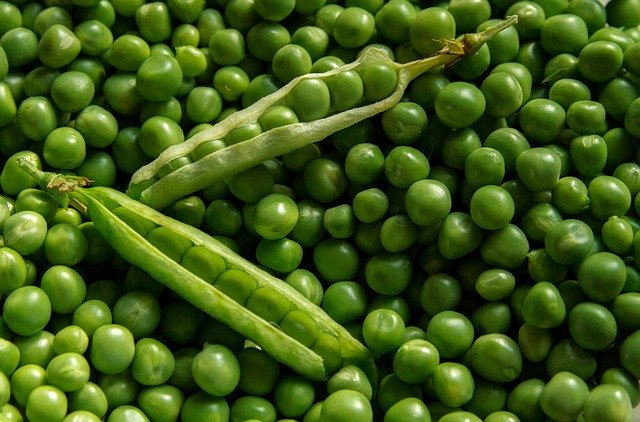
Of all the plant-based milks we’ve discussed so far, only soy milk can match the protein content of dairy milk. Well, allow me to introduce you to pea milk! Remember how our parents always told us to eat our peas? There’s a good reason for that: peas are full of protein and nutrients.
On average, pea milk has the same amount of protein as soy and dairy milk: 8 grams per cup. However, it has about a third of the saturated fat and 50% more calcium than dairy milk!
Additionally, each cup has approximately:
- 80 calories
- 0 grams of sugar (if unsweetened)
- 451 milligrams of calcium
You’ve probably noticed a pattern emerging: many plant-based milks are chock-full of calcium. This is one of the primary reasons why these products have grown in popularity when compared to dairy milk.
Finally, pea milk is similar to hemp milk in that they are both exceptionally eco-friendly. This is due to the fact that they are hardy plants that don’t require a lot of water or fertilizer. According to this market analysis, pea milk requires:
- 99% less water than dairy
- 96% less water than almond milk
- 76% less water than soy milk
Both dairy and almond milk require a lot of water, so a lot of environmentally-conscious consumers are turning to less water-intensive options like pea or hemp milk.
7) Oat milk
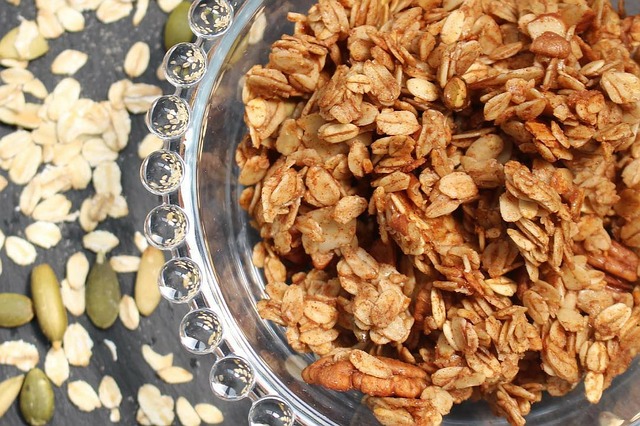
As an online retailer, it’s crucial that you always watch for new and emerging food trends. Do you remember how we pointed out the growing popularity of hemp milk? Well, oat milk is also making quite the grand entrance. This alternative dairy option is taking the market by storm. In fact, this trend is so strong that Forbes has asked, “Is 2019 The Year of the Oat?” According to an analysis by Future Market Insights, oat milk will likely grow at a rate of 8.2% in the years 2018 to 2027. As you can see, it sure looks like oat milk is going to have a big year!
But is oat milk nutritious? How does it compare to the older, more established alternative milks? Well, an unsweetened cup has approximately:
- 130 calories
- 4 grams of protein
- 5 grams of fat
- 2 grams of fiber
- 16 grams of carbohydrates
This nutrition profile is pretty good! As you can see, it has a respectable amount of protein; not as much as pea or soy, but more than rice, almond, or coconut. It is also similar to hemp milk with its high proportion of dietary fiber. Additionally, it has the following daily values (DVs):
- 50% vitamin B12
- 46% riboflavin
- 27% calcium
However, not all oat milks are gluten-free. This is significant for consumers who may suffer from celiac disease or gluten sensitivity.
8) Cashew milk

Cashew milk tastes similar to almond milk, although they have substantially different nutrition profiles. Both varieties have a telltale nutty taste with a rich, creamy texture. Generally, if a consumer prefers cashews to almonds, they’ll prefer cashew milk to almond milk.
That being said, a cup of unsweetened cashew milk has:
- 25 calories
- 2 grams of fat
- 0 grams of fiber
- 2 grams of protein
- 1 gram of carbohydrates
- 47 milligrams of calcium
Due to its low calories and carbohydrates, cashew milk is particularly popular for consumers who are watching their waistline. Additionally, it’s rich in unsaturated fats, which are generally more nutritious than the saturated fats you find dairy milk. This high volume of fats gives it a rich texture that makes it great for soups, sauces, or oatmeal. It also does not require nearly as much water as almonds, rice, or soybeans, making it an eco-friendly option.
However, keep in mind that cashews are tree nuts, making it one of the Big-8 allergens!
What Are Some Other Types of Plant-Based Milk?
Although the overall food trend is expanding steadily and rapidly, there are some less popular plant-based milks. These include:
- Hazelnut milk
- Macadamia milk
- Flax milk
- Walnut milk
- Peanut milk
- Pecan milk
- Pistachio milk
- Quinoa milk
- Barley milk
- Chia (seed) milk
- Sesame (seed) milk
- Pumpkin (seed) milk
It’s likely that many of these lesser-known varieties will also grow in popularity in the years to come. Furthermore, veganism is also experiencing a moment in the wider food culture, meaning that more consumers will be looking for alternative dairy products for baking and cooking.
Alternative Dairy Food Trends and Greendropship

Online retailers need to always be on the lookout for those products that will really pop in their online store. It can be a real challenge to keep up with shifting food trends and customer demand. However, if you partner up with a reliable dropshipping supplier that has an extensive inventory of products, you can rest assured that your e-commerce store will become more competitive in a tough marketplace. Greendropship has over 20,000 natural and organic products, made in the USA, including a wide selection of plant-based milks. With such an incredible selection of products, take a quick moment to download out our extensive product catalog.
You can also contact one of our knowledgeable and friendly representatives today with any questions you may have. They’ll help you get situated so you can stock your online store and start selling right away!
